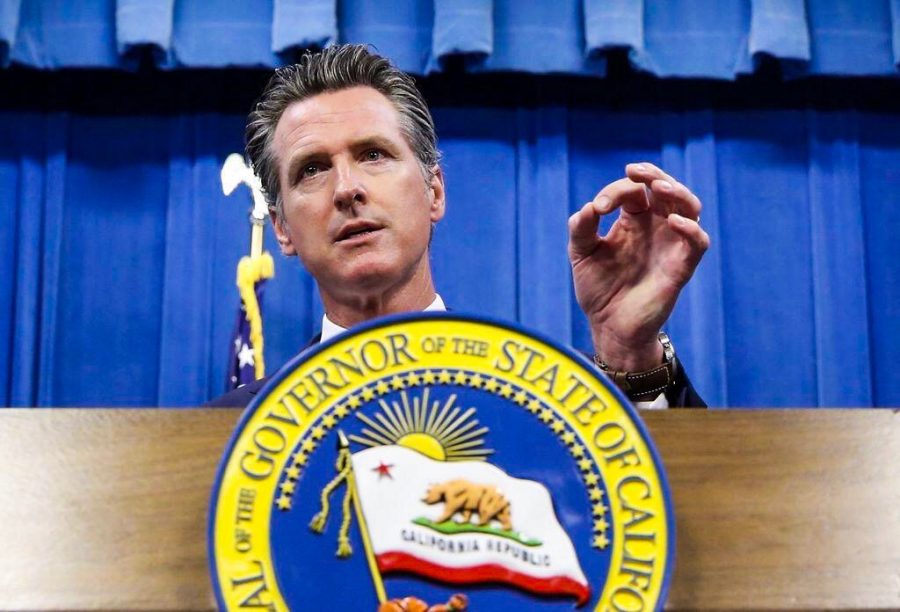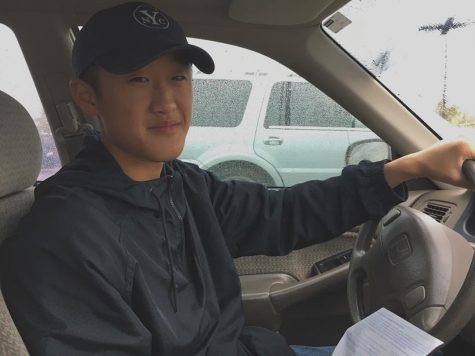California Gov. Gavin Newsom allows college athletes to profit off of their “name, image, or likeness,” as stated in the new Fair Pay to Play Act.
The bill was signed into law on Sep. 30 and is set to operate on Jan. 1, 2023. The signing was broadcast on HBO’s ‘The Shop’ hosted by LeBron James, one of many advocates for additional compensation to college athletes.
The National Collegiate Athletics Association is an organization that authorizes the funding and regulations of college sports and college sports competitions at 1,117 universities and colleges, overseeing those which possess Division I, Division II, and Division III sports. One of these regulations applies to contracts agreed upon the NCAA and college athletes, which provide that theses students cannot receive additional compensation which do not apply to scholarships, and for some free education, or educational and living benefits.
California has decided that “the gigs up, billions and billions of dollars, 14 plus billion dollars goes to these universities goes to these colleges, billion plus revenue to the NCAA themselves and the actual product, the folks that are putting their lives on the line, putting everything on the line are getting nothing…” as said by Gov. Newsom.
Advocates for this new bill are arguing that the money is concentrated in the universities and the administration. The New York Times said that Clemson University’s Dabo Swinney, football coach of the Clemson Tigers, has been awarded with a “10-year contract worth $93 million on Friday, the richest contract ever for a college football coach.” When asked about his feelings toward the newly passed bill in a press conference, Draymond Green of the Golden State Warriors said that the organization was a “dictatorship” in respect to the community of college athletes, and “when you see a college… a commercial promoting a college game, it usually shows the coaches, and they don’t score a point.”
Coach Lindsay Samaniego is the head coach of the Olympians women’s basketball team. She is a former college basketball player herself, previously playing for the SDSU Aztecs for two seasons . In response to the new law, she emphasized the distinction between college athletes and their amounts of compensation. She said that Division I athletes often feel like the position they’re in “feels like a full-time job” as opposed to Division II and Division III. This distinction of the amount of training and time invested determines what kind of compensation earned. Coach Samaniego stated: “your scholarship is giving you, is basically paying you for your full-time job.”
Another difference between college athletes and the amount of compensation is expressed through the difference in gender. “For the majority, 95% of the women on the womens’ side are staying for four years. So to be able to have that investment over four years, you know, that scholarship adds up over four years.” She said that having a scholarship over the full four years gives someone a better “investment on your future, with your education and your experience and the travel and all those different things.” Male college basketball players and football players don’t utilize their scholarships as much as females do. Coach Samaniego said that they “enter the draft after one year, two years, and so they’re not the full four year, scholarship amount.” She adds that most of the college athletes tend to leave the draft after a year.
Coach Samaniego is addressing that this law will not affect everybody, only those “who will be at the collegiate level for one, maybe two years.” Because of this understanding, she believes this legislation takes away the imperative influence of athletics and education working together, and directs attention to “finding the best school, college, or university that is going to give you the most, that’s able to give you a decent amount of money.”
The NCAA responded negatively to the proposed bill, saying that “it would erase the critical distinction between college and professional athletics…” and that this “unfair recruiting advantage” would not allow California to participate in the NCAA competitions. They went on to say that this proposed bill is “harmful and, we believe, unconstitutional…” After the signing of the bill, the NCAA stated on Sep. 30 that they “will consider next steps in California while our members move forward with ongoing efforts to make adjustments to NCAA name, image and likeness rules that are both realistic in modern society and tied to higher education.”
Cbssports.com announced that several other states have followed California’s actions with new bill proposals similar to the Fair Pay to Play Act. Those states comprise of Colorado, Florida, Illinois, Kentucky, Minnesota, Nevada, New York, Pennsylvania, South Carolina, and Maryland.


